EU agency to address AZ safety as countries battle virus surges
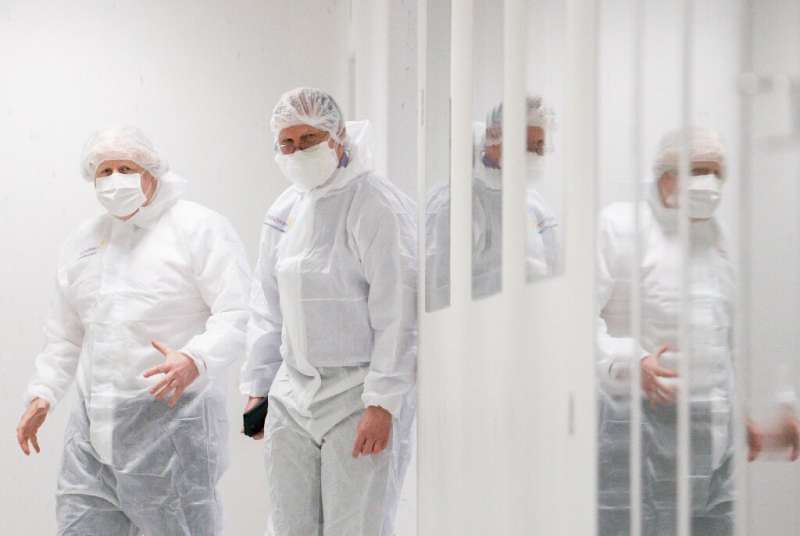
The EU's medicines regulator is expected to present findings over a possible link between blood clots and the AstraZeneca jab on Wednesday, as several countries battle fresh virus surges amid vaccine shortfalls.
A number of nations have suspended the use of AstraZeneca's vaccine for younger populations after it was earlier banned outright in several places over blood clot scares.
The back-and-forth over the shot come as countries from Germany to Ukraine and India face new waves of infections and deaths from the virus that has now killed more than 2.8 million globally.
Governments are scrambling to secure much-needed vaccine doses, with Australia the latest nation to complain of shortages that it blamed on EU export controls.
The European Medicines Agency (EMA) said it will hold a press conference on Wednesday at 1400 GMT after its safety experts examined reports of blood clots among younger people who had received the shot.
The closely-watched press conference comes after a senior EMA official was quoted in Italian media this week saying that there was a "clear" connection between the AstraZeneca jab and clots.
Canada, France, Germany and The Netherlands are among several countries that are not recommending the shot for younger people, though the World Health Organization insists the benefits of the jab largely outweigh the risks.
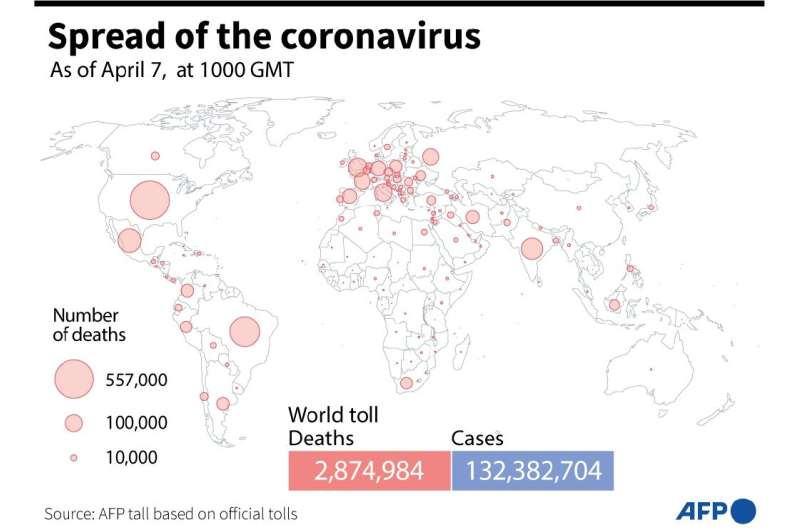
Snap lockdown
The controversy surrounding the jab has marred a global vaccine rollout that governments hope will help countries emerge from a pandemic that has ravaged the global economy and subjected much of humanity to some form of confinement.
In Germany, Chancellor Angela Merkel expressed support for a snap lockdown to stem rising cases, after decentralised measures failed to quell outbreaks.
The patchwork of rules across Germany's 16 states "is not contributing to security and acceptance at the moment", her spokeswoman Ulrike Demmer said.
Hard-hit France imposed tighter measures this week, while Ukraine on Wednesday reported record new deaths and hospitalisations.
"It is no exaggeration to describe the situation as critical," said Kiev mayor Vitali Klitschko, warning that the city's hospitals would run out of beds "very soon".
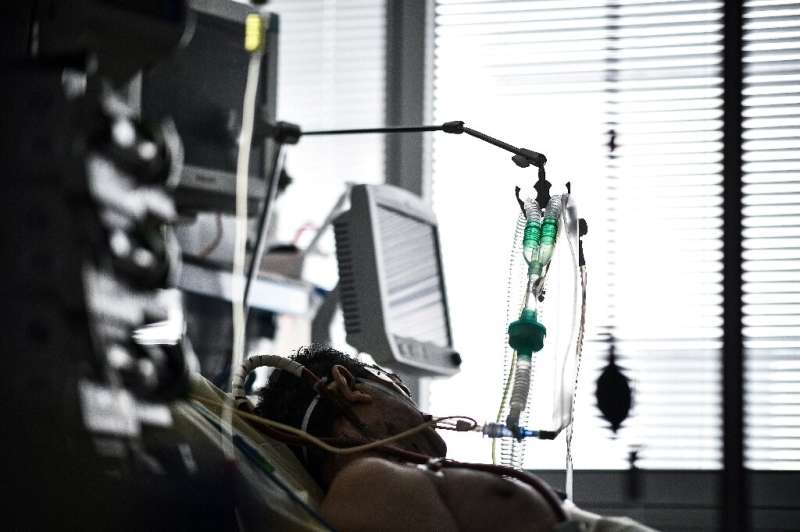
Kiev also tightened measures this week, closing kindergartens and primary schools and introducing travel restrictions.
India, which registered a 24-hour record of almost 116,000 new cases on Wednesday, said it too would rollout tougher curbs with new curfews in place in 20 cities, including the capital New Delhi.
India has now recorded 12.8 million cases—the third-highest behind the United States and Brazil—and experts blame the new wave on people ignoring guidelines to attend huge religious and political events, along with weddings.
'Very stressed'
As millions readied for new anti-virus rules in India, the country's Serum Institute—the world's largest Covid vaccine maker—said it needed financial help after the government imposed export restrictions to secure much-needed doses at home.
Production capacity at the Serum Institute of India—which makes the AstraZeneca jab—is now "very stressed, to put it quite frankly", the firm's CEO Adar Poonawalla said.
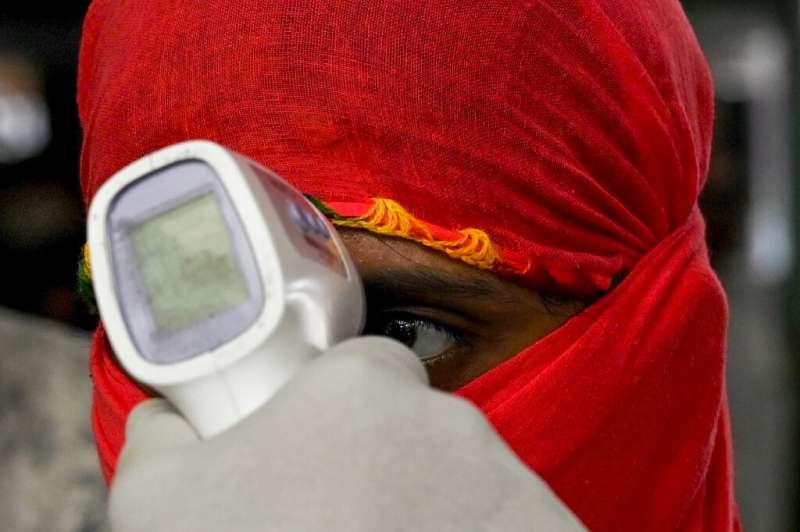
Australia was facing vaccine woes of its own, after just 700,000 of a contracted 3.8 million doses of the AstraZeneca vaccine were delivered.
Prime Minister Scott Morrison blamed the EU for the shortages, accusing the bloc of "strict export controls".
"3.1 million vaccines didn't arrive in Australia—that's just a simple fact," he said.
"It's not a dispute. It's not a conflict. It's not an argument. It's not a clash. It's just a simple fact."
More than 692 million doses of coronavirus vaccines have now been administered globally, according to an AFP tally, with just a handful of countries leading the pack by a wide margin.
Israel has inoculated 61 percent of its people with one dose, while the United States has administered 33 percent with a first shot.
US President Joe Biden said Tuesday that all adults across the country will be eligible for jabs by April 19, saying the "vaccine programme is in overdrive.
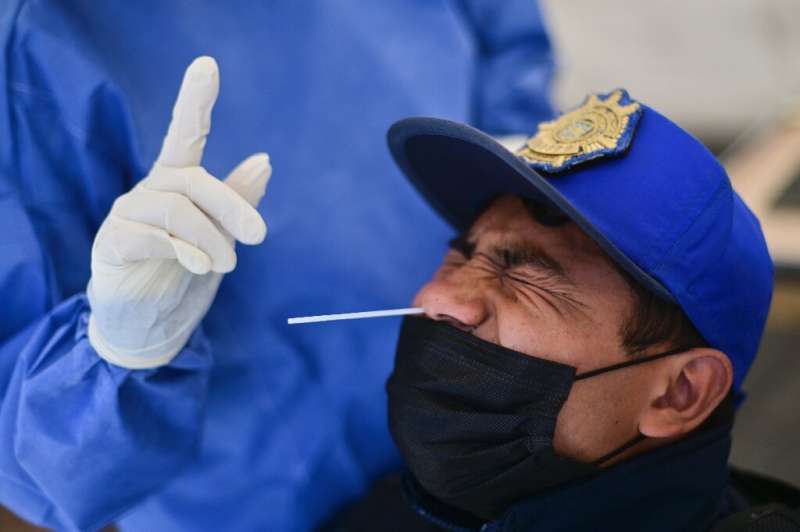
"We're making it easier to get a vaccination shot," Biden told the nation. "We're the first country to administer 150 million shots and the first country to fully vaccinate over 62 million people."
In the United Kingdom nearly 47 percent of people have received a first dose, and the country on Wednesday started rolling out the Moderna jab, the third approved after AstraZeneca and Pfizer.
The first person to get the Moderna shot in Britain said she was relieved to finally feel safe again.
"I'm an unpaid carer for my grandmother so it is very important to me that I get it, so I can care for her properly and safely," said 24-year-old Elle Taylor.
© 2021 AFP





















